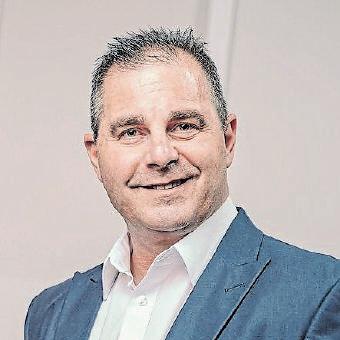There has been a huge outcry and threats of litigation in response to the signing of the National Health Insurance (NHI) Bill in May. One of the central issues is the future role of medical schemes and private health care once NHI is fully implemented, given that the act states that medical schemes will not be able to provide cover for services that are paid for by the NHI.
Busi Mavuso, CEO of Business Leadership South Africa, accused the government of rushing populist policy through parliament as part of an “electioneering ploy” in a move that is “destructive for many stakeholders and relationships at a time when partnerships between government and business are critical to building confidence globally that South Africa is an investable destination”
Mavuso echoed the opinion of many in the public sector that “the law will never work, simply because there is no capacity to implement it, and as soon it is signed, it will be embroiled in litigation on several fronts including its constitutionality”
Cas Coovadia, CEO of Business Unity South Africa, was similarly scathing, saying that the legislation in its current form is “unworkable, unaffordable and not in line with the constitution”
Especially troubling, he said, was that the president proceeded despite extensive

Lee Callakoppen, principal officer of Bonitas Medical Fund, the second-largest open medical aid scheme in South Africa, agrees, pointing out that the act is a complex piece of legislation that could take years to be clarified. His advice to private health-care members is to retain their medical aid membership.
“The biggest concerns surrounding the act,” says Callakoppen, “are around funding, administration and continued freedom of choice as set out in the Bill of Rights.
“Detail is lacking in terms of how NHI will be funded. The most likely option is additional taxes. However, until the NHI implementation plan is finalised, it’s difficult to know what the actual costs will be. A fact which needs to be taken into account is that taxpayers, including private medical scheme members, already fund 75% of the public health budget,” he says.
The administration of the proposed central system of health care, on the other hand, will need rigorous governance. Existing medical aids are strictly regulated.
“NHI too would be a not-for-profit organisation owned by its members. Private medical schemes are under strict scrutiny and undergo public audits as they are obligated to the members of the medical aid, which is, in essence, a trust fund,” says Callakoppen.
NAVIGATING THE COMPLEX QUESTION OF
NHI vs MEDICAL AID SCHEMES
constructive inputs made by a wide range of stakeholders including doctors, healthcare professionals, civil society, public sector unions, academics and business.
The unfortunate consequence is that this version will hamper, rather than promote, access to quality health care for all citizens in our country, said Coovadia.
The public health-care system has, in theory, always offered free or at least heavily subsidised health care. However, the health ombud has previously told parliament that most hospitals will not meet the standards required by the NHI.
Discovery, the largest open medical scheme currently, says that limiting the role of medical schemes would be counter-productive to the NHI because there is currently insufficient resources to meet the needs of all South Africans, and that preventing those who can afford it from using their medical scheme cover and forcing them onto the NHI system will increase the burden on public funding which taxpayers need to cover.
Medical schemes have been quick to reassure members that it is business as usual for now. Discovery CEO Adrian Gore told members it will take a decade, at least, to achieve full implementation, given the scale and complexity of the reforms required.
He explains that international concepts of universal health care make provision for freedom of choice. We believe citizens should be open to purchasing health care should they have the means to.
According to the white paper, NHI will be rolled out in priority areas first. These include health care at schools, childhood cancer, women s health (including pregnancy, cervical cancer and breast cancer), disability and rehabilitation services as well as hip, knee and cataract surgery for the elderly.
But what about the remainder of the population, asks Callakoppen. Medical schemes offer a number of benefits that are immediately available to members. This allows them to access the care they need when they need it. If the NHI is to be rolled out to specific target groups first, what becomes of others in need? That s why we believe public and private health care can and should co-exist.
He argues that medical schemes need to be able to work in tandem with the NHI, so that duplication of costs is prevented.
Universal health care is in everybody s best interest. We need to focus on public and private enterprise working together, strong leadership, accountability and dealing with social-economic issues as an integral part of the process.
14 LifeStyle 09 • 06 • 2024 Sunday Times 14/15
SPONSORSHIP MEDICAL COVER OPTIONS
Business as usual at medical schemes despite NHI being enacted, writes Lynette Dicey
Picture: 123RF.COM/MEENNA
SPONSORSHIP
Health care cover, no
Poor economic growth and personal incomes that are not keeping up with inflation make decisions regarding medical care even more important.
Irrespective of whether you are studying, entering the job market, working or facing retirement, the challenge is finding the right medical aid plan to suit your healthcare needs and wallet.
Bonitas data reveals that members experience a 2% increase in health claims with each year they age. Lee Callakoppen, principal officer of Bonitas Medical Fund explains that as you age, you are more likely to experience conditions such as hearing loss, cataracts, back and neck pain, osteoarthritis, chronic obstructive pulmonary disease, diabetes and dementia.
“It’s therefore essential that, when doing financial planning for your future, you factor in the necessary medical aid and funds to access the level of care required,” he says.
He warns against downgrading to more affordable options as you get older. “The relief from higher monthly costs can be short-lived when unexpected medical events occur. Members need to understand what benefit limitations may exist on the option or plan they are considering downgrading to. These can include annual limits, co-payments and the use of network health-care providers, so this needs to be considered and balanced against realistic health-care needs.”
Downgrading may lead to a medical aid plan with more exclusions, which is why it’s important to know what, if any, procedures or services are and aren’t covered, he adds. “This is particularly important as you get older. For example, knee
matter your age
and hip replacements become more likely: An MRI on your knee can cost around R15,000 and costs can increase rapidly when you factor in treatment, medication and procedures if you don’t have any health-care cover.”
His advice to university-aged youth is to join a medical aid as a main member as soon as they are able to so they can choose a plan to meet their specific needs. Joining earlier also means they have access to preventative care benefits and screenings. So, if a health-care concern or non-communicable diseases such as high cholesterol or diabetes is detected early on, proper interventions can take place.
“The earlier you join a medical scheme, the more likely you’ll avoid late joiner penalties, which will mean paying additional premiums,” he says.
Despite the fact that life is unpredictable and more people are feeling the pinch financially, cancelling medical aid should be a last resort, he advises. “If you resign from your medical aid to save money, you may incur additional expenses in the form of late-joiner penalties or face other underwriting consequences, such as waiting periods, should you decide to rejoin at some point in the future.”
The public health-care system is already overburdened and despite the NHI Bill being signed, it’s a long way away from being implemented. “This means”, he says, “that access to the level of care required may not always be available. We advise members to rather consider a hospital plan to ensure they have cover for emergencies and chronic conditions should they be faced with financial pressures.”
There are ways to manage your medical


It’s essential that when doing financial planning for your future you factor in the necessary medical aid and funds to access the level of care required
 LEE CALLAKOPPEN Principal officer of Bonitas Medical Fund
LEE CALLAKOPPEN Principal officer of Bonitas Medical Fund
expenses and work smarter with your scheme’s benefits, reveals Callakoppen. This includes using Designated Service Providers (DSPs) and hospital networks for more favourable tariffs; asking medical practitioners and hospitals for a quote before a procedure and negotiating an adjusted fee where necessary; using the free wellness screenings and tests offered by your medical aid; choosing generic medications where possible; using the chronic medication on your scheme’s formulary and obtaining this from a specified pharmacy; not consulting doctors or emergency rooms after hours unless absolutely necessary; ensuring you understand what is covered under Prescribed Minimum Benefits (PMBs); and finally, taking out gap cover to cover the difference or part of the difference between what the medical scheme pays and what you are charged for in-hospital procedures and treatments and specified outpatient procedures.
“The bottom line,” he says, “is that you cannot compromise on your health. The cost of private health care can be financially crippling, especially in the case of a severe illness or surgery. Medical aids allow access to quality health care when needed, which is vital in cases of an emergency.”



























































15 LifeStyle 09 • 06 • 2024 Sunday Times www.bonitas.co.za JOIN NOW 0860 002 108bonitas.co.za||| WhatsApp 060 070 2491 type ‘Hi’ to start a session It can be used for anything from GP visits and over-the-counter medicine to x-rays and more. IN EXTRA BENEFITS WITH OUR BENEFIT BOOSTER GET UP TO R5 000* *Plan dependent
MEDICAL COVER OPTIONS
Picture: 123RF.COM/MICROONE
SPONSORSHIP
The benefits of consulting a medical aid advisor
Trying to navigate the several benefit options that medical schemes have to offer can be overwhelming.
The good news is that most schemes offer advisors at no cost to help guide members and potential members to make the right choice of plan to suit their health-care needs and budget. Advisors will also help with enrolment, as well as guide and support members with any queries.
When individuals are considering enrolling in a medical scheme, speaking to an advisor can provide essential guidance, says Zerina Richards, advisor sales manager at Bestmed Medical Scheme. “Advisors can help assess individual health-care needs, explain plan options, coverage details and associated costs, to ensure that people make informed decisions that align with their medical requirements and budget.”
Significant life events such as marriage, the birth of a child, divorce, retirement, or changes in employment status can impact an individual or family’s health-care needs and medical aid coverage requirements. Richards says advisors can help members navigate these transitions, adjust
their coverage as needed, and ensure that they remain adequately protected during times of change.
Members can downgrade their plan choice within an existing medical scheme at any point of time. They also have the option to upgrade their choice of plan once a year. Richards says it’s essential to use this annual opportunity to review one’s medical aid coverage to ensure it still meets one’s needs and remains cost-effective.
“Advisors are well-placed to assist in evaluating current coverage, comparing plan options, and making adjustments during open enrolment periods to optimise benefits and minimise costs,” she says.
They can also provide valuable assistance if members have any issues with claims processing, billing errors, or disputes with health-care providers. In addition to helping to navigate the claims resolution process, they will advocate on behalf of members, and ensure fair and timely resolution of issues. Changes in health status or medical needs may necessitate adjustments to a member’s current cover, such as adding supplementary coverage or switching to a plan with broader benefits. Richards says

Speaking to advisors ensures personalised guidance, support, and advocacy to navigate the complexities of health care and medical aid effectively


advisors can provide guidance on available options, coverage limitations and potential out-ofpocket expenses to help people make informed decisions about their health care.
The role of the advisor also involves keeping members informed about regulatory changes, policy updates, or changes in a medical scheme’s offerings, which could impact coverage options or benefits. In these instances, advisors are able to explain how changes may affect the member’s coverage and help navigate any adjustments needed to ensure continued access to necessary health-care services. In emergency situations or during critical health-care events, members may require immediate assistance and guidance from
advisors. Advisors can help navigate urgent care options, coordinate with health-care providers, and ensure individuals receive timely access to the necessary medical services.
“Medical aid is a significant component of financial planning. Advisors can help individuals assess the financial implications of different coverage options, budget for health-care expenses and identify strategies to minimise out-of-pocket costs, while maximising coverage benefits,” says Richards. “Overall, speaking to advisors at these crucial moments ensures individuals receive personalised guidance, support, and advocacy to navigate the complexities of health care and medical aid effectively.”

16 LifeStyle 09 • 06 • 2024 Sunday Times Your medical aid shouldn’t be. Being a mom is complicated. Bestmed Medical Scheme is a registered medical scheme (Reg. no. 1252) and an Authorised Financial Services Provider (FSP no. 44058). *Abbreviation of Bestmed Medical Scheme. Simply be with the Best.* Simply switch to Bestmed to get easy, awardwinning medical aid for those complicated situations being a kid gets them into. News24 Medical Scheme of the Year Award 3x Titanium Award Winner for Excellence in Creating Access to Quality Healthcare Ranked 1st in the Medical Aid category for Ask Afrika Orange Index 2020, 2022, 2023 2024 2022 www.bestmed.co.za
ZERINA RICHARDS Advisor sales manager, Bestmed Medical Scheme
MEDICAL COVER OPTIONS
16/17 Picture: 123RF.COM/BROVECTOR
SPONSORSHIP
Low-cost health insurance could be a game-changer
The medical schemes industry has for years been pushing the Council for Medical Schemes (CMS) to develop a regulatory framework for low-cost benefit options, which it says would open up the medical scheme market to low-income workers who can’t afford more expensive memberships. These products would also have the added benefit of alleviating pressure on the overburdened public health-care system.
The relationship between the CMS, the body regulating medical schemes in South Africa, and the medical scheme industry has become increasingly fractious in recent years.
Earlier this year, the Board of Healthcare Funders (BHF), an industry association representing medical schemes and medical scheme administrators, accused the CMS of abusing its power, wasting money on unnecessary litigationand failing to conduct reviews of prescribed minimum benefits (PMBs).
The Medical Schemes Act requires that PMBs a basic level of care for 27 chronic conditions and 270 diseases that all schemes have to offer their members be reviewed every two years.
The CMS has since 2015 been developing a low-cost benefit option framework that will allow medical schemes to offer consumers more affordable primary health-care cover. The framework will require that schemes be exempted from covering PMBs for low-cost health-care insurance products.
It was only in November 2023 that the CMS submitted its report on these low-cost options to the health minister. However, it declined to make the report public.
The BHF went to court to compel the CMS to hand over its records on developing a low-cost,

Currently only about 15% of the population is covered by private health-care schemes. Covering more of the uncovered population who are employed would alleviate some of the pressure on a highly constrained public health-care system
DAMIAN MCHUGH Momentum Health Solutions
low-benefit option. The litigation, it said, was an attempt to have the court declare the CMS’s failure to develop and implement low-cost benefit option guidelines “irrational, unreasonable and unlawful”. It also applied to the Competition Commission for an exemption to enable the BHF to negotiate pricing, address affordability and increase access to medical scheme cover in line with the health market inquiry report published in 2019. The BHF, which has long supported universal health coverage, has previously pointed out that NHI is not universal health coverage but rather a funding mechanism, and that a number of interventions need to be considered to support progress towards universal health coverage
Momentum Health Solutions is one of the insurers offering affordable health-care cover insurance products and has seen notable growth in this segment. While numbers in this market are not public, it’s estimated there are about 1.5million people covered by these solutions.
Damian McHugh, chief marketing officer at Momentum Health Solutions, says: “Growth annually exceeds medical schemes’ growth by some margin. Granted, this growth is off a lower base, but it shows the importance that companies and their employees are attributing to these low-cost options.”
It’s not only insurers that are offering these low-cost options, but also hospital groups. Netcare has introduced a range of products aimed at providing consumers with more affordable health care In 2023, Discovery Health partnered with Clicks and Auto & General Insurance to bring a low-cost health insurance product to the market.
The industry argues that, given their more affordable premiums, low-cost health insurance
products are a viable option for many South Africans who have not previously had access to health-care cover
“Health care is a fundamental right for everybody,” says McHugh. “Currently only about 15% of the population is covered by private health-care schemes. Covering more of the uncovered population who are employed would alleviate some of the pressure on a highly constrained public health-care system. Lowcost options therefore play a critical role in providing more affordable cover and, in doing so, assist government in its pursuit of universal health care.”
McHugh stresses, however, that the mere introduction of health insurance products cannot alone adequately address South Africa’s pressing health-care crisis. “Health insurance products are not a substitute for medical scheme membership, as they don’t offer the same level of coverage and protection that medical schemes do.”
However, this does not mean health insurance products are not valuable in their own right, he says. The rising cost of living have put many households under financial pressure. For medical schemes, the risk is that even those who can afford medical scheme membership will opt for more affordable health insurance instead
McHugh says affordable health insurance covering day-to-day needs is an important first step towards providing a more comprehensive solution “If health-insurance products are properly regulated and designed to complement the existing health-care system, they can play an important role in improving access to health care. However, this will require a collaborative approach ... to ensure health-insurance products are affordable and transparent ...”



17 LifeStyle 09 • 06 • 2024 Sunday Times SIGN UP member@medshield.co.za 086 000 2120 www.medshield.co.za We’re with you through all the ups and downs
MEDICAL COVER OPTIONS
Surge in health inflation a cause for concern
Rising health-care costs have become a growing concern for individuals and families who find it an ever-increasing challenge to afford quality health care. The disparity between consumer inflation currently at 5.6% and the much higher health-care inflation is a cause for concern, particularly for members of medical schemes. While general living expenses may see moderate increases or remain stable over time (as reflected by consumer inflation), healthcare costs continue their relentless ascent at an alarming rate (as indicated by healthcare inflation), with the result that people are having to allocate more of their income towards medical expenses.
Understanding the dynamics of health and consumer inflation is key to understanding health-care affordability, says Kevin Aron, principal officer at Medshield Medical Scheme.
“Health inflation refers to the rate at which medical costs increase over time, while consumer inflation measures changes in general prices across various goods and services. These two types of inflation impact individuals’ purchasing power differently,” he explains.
In South Africa, health-care costs have consistently exceeded general consumer inflation rates. There are several factors contributing to this trend, says Aron. “Firstly, input costs into health care and medical technology advancements have resulted in increased expenses. Additionally, rising drug prices and the higher demand for medical services have contributed to increasing costs associated with diagnosis and treatment options.”
Health-care providers, he says, grapple with additional challenges, including maintaining highly skilled employees and complying with stringent regulatory requirements that increase input costs.
Pharmaceutical prices have continued to rise due to global market dynamics and patent protection laws. Furthermore, an ageing population places additional
demands on health-care services while also increasing overall expenditure for chronic conditions such as diabetes or cardiovascular diseases.
“These increasing expenses are passed on to patients through higher fees for consultations, procedures, medications and hospital stays,” says Aron.
The impact of high health inflation is felt most acutely by low-income households dealing with escalating medical bills while struggling to meet basic needs. For many South Africans living below the poverty line, health care has become a luxury they cannot afford, exacerbating existing inequalities in access to quality health-care services.
However, as Aron points out, the middle class is not immune to these challenges. “As health inflation outpaces salary increases and general consumer inflation, individuals and families are faced with the difficult choice between prioritising their health or managing essential expenses such as education, housing and food.”
Private health care is perceived as more expensive than public alternatives, offering benefits such as shorter waiting times and access to specialised care. However, these advantages come at a cost, says Aron.
“The high cost of private health care can be attributed partly to health inflation but also reflects the higher tariffs of doctors and specialists working within the private sector compared to their public counterparts. Prescribed minimum benefits (PMBs) and in particular Regulation 8 which allows health-care practitioners to charge any amount they want if the treatment or service is a PMB, has also played a role in the increase in costs,” says Aron.
Medical schemes play a crucial role in making private health care more affordable for individuals by pooling member contributions to cover medical expenses and negotiating rates with health-care providers. By leveraging their collective bargaining power, they can negotiate lower fees for services and medication, mitigating the impact of health inflation on individual


Health inflation refers to the rate at which medical costs increase over time, while consumer inflation measures changes in general prices across various goods and services

members’ budgets.
Rising health-care costs mean that medical scheme contributions have also been subject to significant increases over the years, posing a challenge for consumers as well as medical scheme providers as they struggle to balance affordability with adequate coverage.
To address the affordability challenges in South African health care, Aron believes stakeholders in the health-care value chain need to collaborate and implement effective strategies. Among his potential solutions are to increase government investment in health care, including allocating more resources towards public health-care infrastructure such as hospitals and clinics and services, including medical personnel training programmes and subsidising essential medications.
Another is to implement stricter regulations on drug prices to help control excessive costs within the pharmaceutical industry. “Negotiating fair pricing agreements with pharmaceutical companies can ensure that life-saving medication remains accessible to all citizens,” he says.
The focus also needs to shift towards preventive care rather than reactive treatment to help reduce long-term health-care costs for individuals and society. “Encouraging regular check-ups, healthy lifestyle choices, and early intervention programmes can lead to better health outcomes while minimising financial burdens,” says Aron.





Collaborations between public and private sectors, he adds, can improve access to affordable health-care options by effectively leveraging resources from both domains. This can be further enhanced by exploring innovative insurance models catering to low-income households and providing much-needed financial protection against high medical expenses.
“Critically, we need to have more competition rather than restricting market entry. Encouraging competition among private health-care providers can drive down prices while maintaining quality standards. At the same time, we need transparent pricing and sharing of health-care information so consumers are empowered to make informed decisions about their care options,” he says.
While medical schemes are vital in making private care more accessible, Aron says that addressing these challenges requires collaboration between government entities, industry stakeholders and consumers.
“The widening gap between consumer and health inflation rates highlights the need for comprehensive but sensible reforms to curb rising costs while ensuring equitable access for all citizens. Through collective efforts, South Africa can progress towards achieving an affordable and sustainable health-care system for all its citizens.”
18 LifeStyle 09 • 06 • 2024 Sunday Times 18/19 SPONSORSHIP
MEDICAL COVER OPTIONS Picture: 123RF.COM/BROVECTOR
KEVIN ARON Principal officer at Medshield Medical Scheme







































































19 LifeStyle 09 06 2024 Sunday Times Powered by Discovery Scan here or call 0860 444 779 to join today Flexicare is not a medical aid. Flexicare is administered by Discovery Health (Pty) Ltd, registration number 1997/013480/07an authorised financial services provider and underwritten by Auto & General Insurance Company Limited, registration number 1973/016880/06, a licensed non-life insurer and financial services provider. Terms, conditions and limits apply. Clicks ClubCard terms and conditions available on www.clicks.co.za




 LEE CALLAKOPPEN Principal officer of Bonitas Medical Fund
LEE CALLAKOPPEN Principal officer of Bonitas Medical Fund















































































































